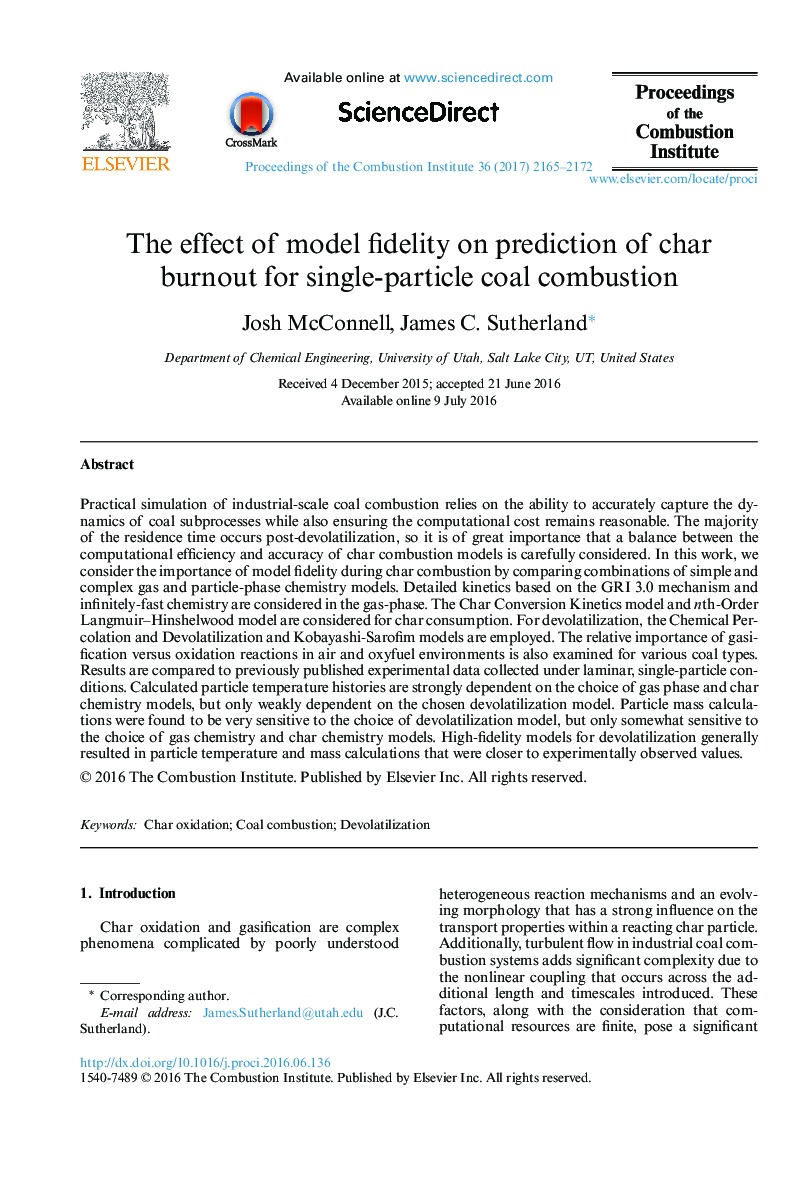| کد مقاله | کد نشریه | سال انتشار | مقاله انگلیسی | نسخه تمام متن |
|---|---|---|---|---|
| 6478297 | 1427916 | 2017 | 8 صفحه PDF | دانلود رایگان |
Practical simulation of industrial-scale coal combustion relies on the ability to accurately capture the dynamics of coal subprocesses while also ensuring the computational cost remains reasonable. The majority of the residence time occurs post-devolatilization, so it is of great importance that a balance between the computational efficiency and accuracy of char combustion models is carefully considered. In this work, we consider the importance of model fidelity during char combustion by comparing combinations of simple and complex gas and particle-phase chemistry models. Detailed kinetics based on the GRI 3.0 mechanism and infinitely-fast chemistry are considered in the gas-phase. The Char Conversion Kinetics model and nth-Order Langmuir–Hinshelwood model are considered for char consumption. For devolatilization, the Chemical Percolation and Devolatilization and Kobayashi-Sarofim models are employed. The relative importance of gasification versus oxidation reactions in air and oxyfuel environments is also examined for various coal types. Results are compared to previously published experimental data collected under laminar, single-particle conditions. Calculated particle temperature histories are strongly dependent on the choice of gas phase and char chemistry models, but only weakly dependent on the chosen devolatilization model. Particle mass calculations were found to be very sensitive to the choice of devolatilization model, but only somewhat sensitive to the choice of gas chemistry and char chemistry models. High-fidelity models for devolatilization generally resulted in particle temperature and mass calculations that were closer to experimentally observed values.
Journal: Proceedings of the Combustion Institute - Volume 36, Issue 2, 2017, Pages 2165–2172
